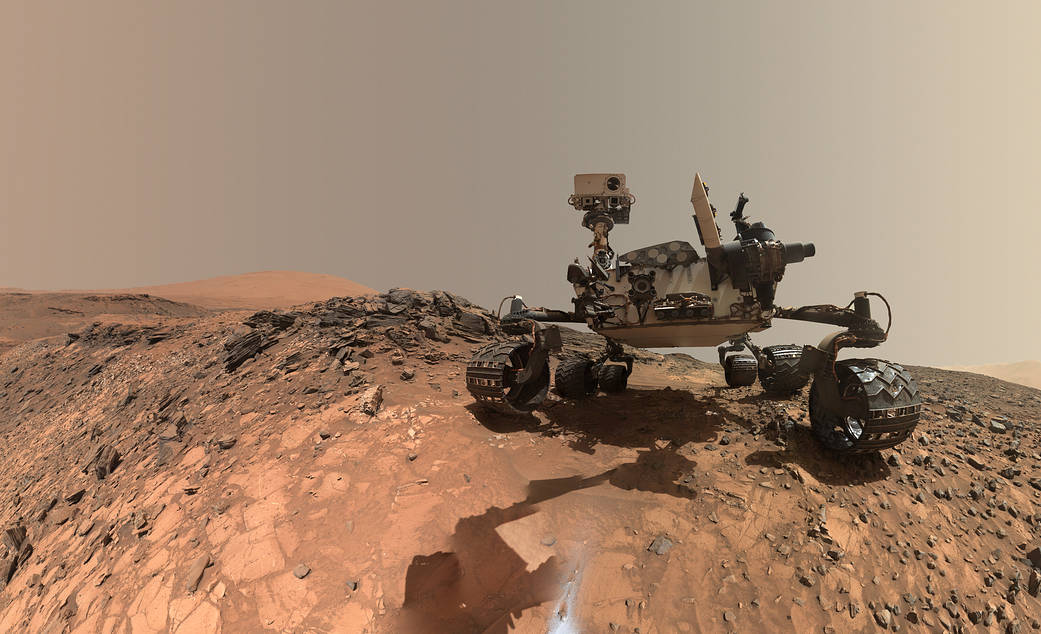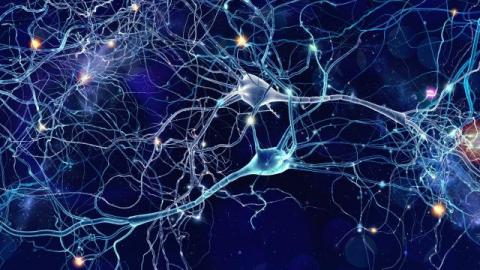What will synthetic intelligence be made of?
July 10, 2018Photo: NASA's Curiosity Mars rover at the Quela drilling location in the Murray Buttes area on lower Mount Sharp. Credit: NASA/JPL-Caltech/MSSS
By Jason M. Pittman, Sc.D.
Recently, my colleague Dr. Antunes discussed the NASA discovery of organic molecules on Mars. In reading his post, I started to think about the biochemical construction of intelligence.
Specifically, I asked myself, "Self, what might a synthetic intelligence be made of?"
As it stands, our methods and instruments are calibrated towards organic molecules, particularly carbon. At least terrestrially, carbon is the dominant element in what we define as biochemistry. Furthermore, carbon seems to be the only element that exists as the foundation for intelligence and consciousness of all types. We must ask, though: is carbon the only biochemical foundation possible? Moreover, if alternatives to carbon exist, might those possess the ability to assemble into the structures necessary for life, intelligence, and, at the extreme, consciousness?
What is the right non-carbon stuff
For all intents and purposes, the biochemistry that gives rise to consciousness seems to be universal. It is universal in the sense that biochemistry as a precursor to life follows the same properties anywhere in the universe, as far as we know (we mustn't forget that caveat). Furthermore, life is a precursor to intelligence and consciousness and thus both must be universal too. From these propositions, we can infer that non-carbon stuff materializing a biochemistry ought to share some properties with carbon.
Silicon is such a potential alternative. Far-fetched you say? Work on developing silicon-based hydrocarbons has been under way for years. Such work has demonstrated methods to assemble simple building blocks but not full-blown lifeforms. We shouldn't be dissuaded from pursuing the goal, though. In the worst case, while falling short, we still may gain some insights into what a non-carbon-based life, and by extension intelligence, may be like.
What would a silicon-based synthetic intelligence be like?
The big question, the fun question, is how might an intelligent, non-carbon-based lifeform embody its consciousness in the world? Frankly, the concept feels as to me foreign as the concept of paranormal entities. That's not to say that neither are possible. Rather, I'm openly stating that I haven't the faintest idea what such a consciousness would be like. I'm not discouraged though as we can leverage the universality of biochemistry and consciousness to infer some clues.
Here again, as in some of my previous arguments, I think plants can impart powerful insights to us. While plants are carbon-based, and the biochemistry of plants is not altogether foreign to our animal-mammalian senses, we lack the ability to interact with any possible plant intelligence. However, if we can bootstrap a means of communication that works for plant intelligence, my hunch is that the same mechanisms will work for non-carbon-based intelligence as well.
I'm going to go out on a limb and suggest that such communication mechanisms will not manifest in the form of rhetoric. Not in the form we're used to anyway. Plants and silicon-based life won't express themselves in words. Yet, I do think synthetic intelligence has an underlying intelligence engine of sorts, something akin to our EEG.
Thus, I'm left wondering what potential role technology may place in mediating a shared reality with non-carbon-based life. In other words, what technology exists that may allow us to establish even a unidirectional mediator such that we can at least listen to a non-carbon-based intelligence?




